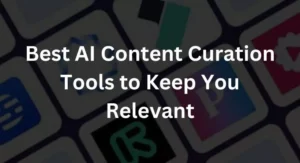
Artificial Intelligence (AI) has become an integral part of the marketing landscape. From personalized product recommendations to targeted advertising, AI enables marketers to reach their audience more effectively than ever before. However, with great power comes great responsibility. Crafting an effective AI use policy is crucial for ensuring ethical, legal, and responsible use of AI in marketing.
The Role of AI in Marketing

AI in marketing involves using algorithms and machine learning to analyze data, predict consumer behaviour, and automate marketing processes. It helps marketers make data-driven decisions and personalize customer experiences. While AI brings numerous advantages, it also raises concerns related to privacy, bias, and accountability.
You may also like reading: The Essential AI Marketing Tools You Need to Enhance Your Strategy
Why You Need an AI Use Policy
Having a clear AI use policy is essential for several reasons:
- Compliance: To ensure compliance with data protection and privacy regulations like GDPR and CCPA.
- Ethical Use: To establish guidelines for ethical AI usage and prevent discriminatory practices.
- Accountability: To assign responsibility for AI-related actions and decisions.
- Transparency: To maintain transparency in how AI is used in marketing.
Key Components of an AI Use Policy
Privacy and Data Protection
Data protection is paramount. Your policy should outline how customer data is collected, stored, and used, with a strong emphasis on consent and security.
Compliance with Regulations
Clearly state how your AI practices adhere to legal requirements and regulations. This section should also detail how you plan to adapt to new legislation.
Ethical Considerations
Address the ethical implications of AI in marketing. Discuss issues like bias, fairness, and the potential impact on vulnerable populations.
Accountability and Transparency
Define roles and responsibilities within your organization related to AI. Explain how decisions and actions involving AI are documented and communicated.
Crafting Your AI Use Policy
Identifying AI Use Cases
Begin by identifying where AI is being used in your marketing strategy. Understand the specific applications and objectives.
Defining Data Collection and Usage
Clearly define what data is collected, how it’s used, and how long it’s retained. Ensure data is collected with consent and used responsibly.
Setting Ethical Guidelines
Create guidelines that ensure your AI practices are ethical, fair, and do not discriminate against any group.
Assigning Responsibility
Specify who within your organization is responsible for AI-related decisions and actions. Promote a culture of accountability.
Communicating the Policy
Training and Awareness
Ensure that your staff is educated about the policy. Conduct training programs to raise awareness of AI ethics and practices.
Stakeholder Engagement
Involve stakeholders in the development of the policy. Get feedback from both internal and external parties to enhance its effectiveness.
Implementing the Policy
Monitoring and Auditing
Set up monitoring mechanisms to ensure compliance. Regularly audit AI processes to identify and rectify issues.
Adapting to Changes
AI technology and regulations evolve. Your policy should be flexible and adaptable to these changes.
Measuring Policy Effectiveness

Regularly assess the impact of your AI use policy. Measure its effectiveness in terms of data protection, ethical use, and compliance.
Case Studies
Successful AI Policy Implementation
Explore examples of organizations that have successfully implemented AI use policies and the positive outcomes they achieved.
Lessons from Failures
Learn from the mistakes of companies that faced backlash due to inadequate AI policies.
Conclusion
Crafting an effective AI use policy for marketing is not just a legal requirement; it’s a commitment to responsible and ethical marketing practices. With AI’s growing role in marketing, your policy will serve as a foundation for building trust with your customers and stakeholders.
FAQs
What is the role of AI in marketing?
AI in marketing involves using algorithms and machine learning to analyze data, predict consumer behavior’s, and automate marketing processes.
Why is an AI use policy important for marketing?
An AI use policy is essential for ensuring compliance with regulations, ethical use of AI, accountability, and transparency in marketing practices.
How do I define ethical guidelines in my AI use policy?
Ethical guidelines in an AI use policy should promote fairness, avoid bias, and prevent discrimination in AI-powered marketing practices.
What should be done if my organization faces AI-related issues?
Regular monitoring, auditing, and adaptability are key to address and rectify AI-related issues.
How can I measure the effectiveness of my AI use policy?
Measure effectiveness in terms of data protection, ethical use, and compliance with relevant regulations. Regular assessments are crucial for improvement.





